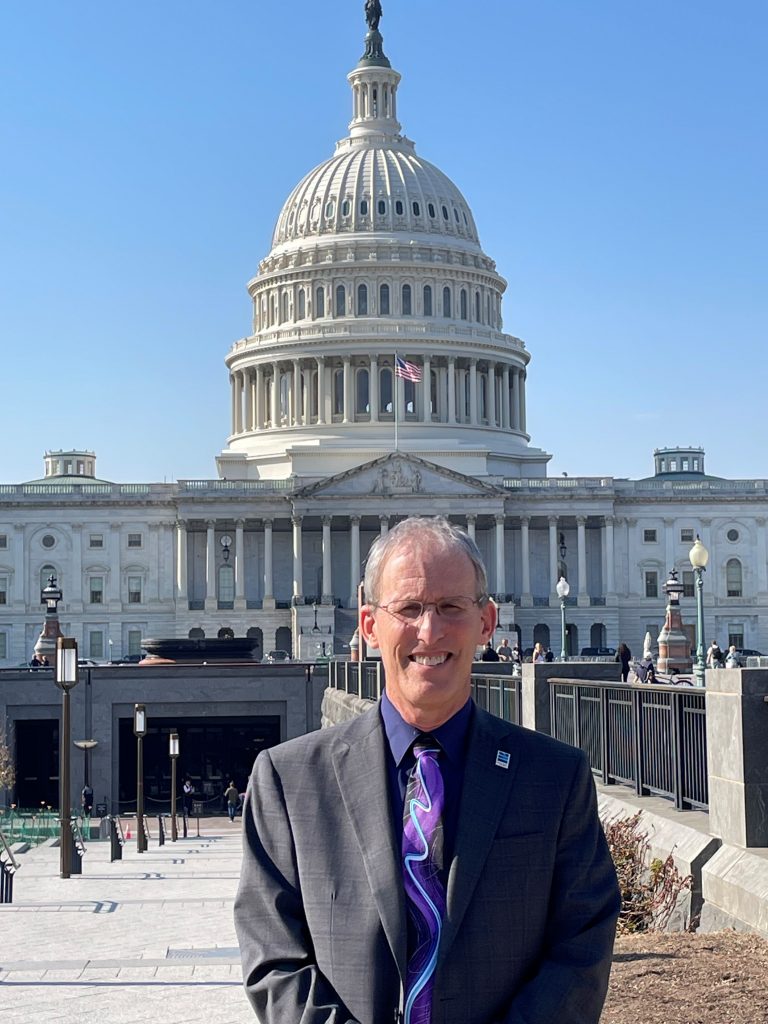Government Shutdown Averted for Second Time as Society Advocates to Fund Health, Research Programs
With the clock running out on a federal government shutdown that was to begin midnight November 17, Congress passed a short-term bill to keep the government open.
The bill will fund most health programs, including the National Institutes of Health (NIH), through February 2. Earlier this year Congress passed a similar measure averting a government shutdown that was to begin October 1. The plan will give lawmakers more time to attempt to negotiate and pass full-year spending bills, though major partisan divisions are expected to make those efforts complicated. The House of Representatives, for instance, introduced a funding bill for health programs that contained sweeping cuts (almost $4 billion for the NIH) and additional policy measures that would restrict research and access to care.
The Endocrine Society has been a vocal advocate for keeping the federal government open and passing a long-term funding bill with increases for the NIH and other federal health and prevention programs.
The Endocrine Society has been a vocal advocate for keeping the federal government open and passing a long-term funding bill with increases for the NIH and other federal health and prevention programs. We will continue our advocacy to protect the NIH from budget cuts and fund health as Congress works on passing legislation before the February 2 deadline.
We encourage members to visit our advocacy page at endocrine.org/takeaction to learn more and participate in our online advocacy campaigns.
White House Announces Initiative to Improve Women’s Health Research
First Lady Dr. Jill Biden and the White House Gender Policy Council recently announced the first ever White House Initiative focused on Women’s Health Research.
The Initiative seeks to eliminate the existing gap in scientific knowledge on women’s health, which has been drastically under-researched and underfunded. President Biden has requested that federal agencies and the White House provide concrete recommendations to advance women’s health research within 45 days of the announcement.
The Endocrine Society has long advocated for expanded women’s health research, increased funding, and for policy changes to improve research, and we applaud the White House for its actions. We plan to work with Dr. Carolyn Mazure, the chair of the Initiative, and her team to achieve scientific breakthroughs and close research gaps.
CMS Releases Finalized Physician Payment Rule
In early November, the Centers for Medicare and Medicaid Services (CMS) released the final Medicare Physician Fee Schedule (MPFS) rule for CY 2024.
This annual rule updates payment policies and payment rates for Part B services furnished under the MPFS. Endocrinology is estimated to see a 3% increase in overall Medicare payments under the rule. The new rule also finalizes a complex add-on code associated with office/outpatient evaluation and management (E/M) services. The Endocrine Society plans to offer some educational resources to our clinician members on the appropriate use of this code in the coming months.
The finalized rule also extends certain telehealth flexibilities including audio-only services. Expanded access to telehealth continues to be a top priority for the Society. The rule also included provisions to improve the utilization of the Medicare Diabetes Prevention Program (MDPP). CMS will create a fee-for-service model for MDPP to improve beneficiary retention in the program.
Every year, CMS requests public comment on its proposed changes and we respond by submitting a comment letter to the agency. You can read our comment letter on the Endocrine Society website. For a full analysis of the final rule, please read our summary.
Society Continues Advocacy to Expand Access to Obesity Treatment and Care
The Endocrine Society continues to advocate for expanding access to obesity treatment and care amidst significant news regarding the effectiveness and availability of anti-obesity medications.
In early November, the Food and Drug Administration (FDA) announced the approval of tirzepatide for treating obesity. This important news was shared with the Endocrine Society government affairs staff by FDA Commissioner Robert Califf during a chronic disease discussion hosted by the FDA.

There was also important news in November regarding the effectiveness of anti-obesity medications (AOMs). The results of an important clinical trial study showed that AOMs reduce cardiovascular risks by 20% in people with obesity. This study was particularly significant as it looked specifically at people living with obesity. Just a few days before the study was released, Endocrine Society President Stephen Hammes, MD, PhD, met with congressional leadership offices to discuss the Society’s policy priorities. One of the issues we discussed with these offices was coverage of AOMs and their effectiveness. During the meetings, we urged leadership to pass the Treat and Reduce Obesity Act (TROA) which would allow Medicare to cover AOMs. Under current law, Medicare is prohibited from covering AOMs.
The Society recently led a sign-on letter signed by over 100 organizations and sent to Members of Congress urging them to pass TROA to improve the lives of many older Americans living with obesity.
Society Successfully Advocates for Policy Priorities at AMA Interim Meeting
In November, the Endocrine Society attended the American Medical Association (AMA) House of Delegates Interim meeting to advocate for issues important to endocrinology.

The November meeting primarily focused on passing advocacy-related resolutions. Endocrine Society delegates Palak Choksi, MD, and Dan Spratt, MD, successfully advocated for several of our policy priorities, including the Special Diabetes Program (SDP), obesity, and gender-affirming care. The Society successfully urged the addition of language to a resolution to ensure that the AMA advocates for both components of the SDP.
The SDP, which is one of the Society’s most important diabetes advocacy priorities, is made up of two important components. The Special Diabetes Program for Type 1 Diabetes Research (SDP Type 1) funds important research being done on type 1 diabetes at the National Institute of Diabetes Digestive and Kidney Diseases at the NIH. The other component is the Special Diabetes Program for Indians (SDPI) which funds type 2 diabetes prevention and education programs for Native Americans and Alaska Natives.
During the meeting, a resolution was offered urging the AMA to advocate for the SDPI, but it did not include SDP Type 1. Choksi successfully offered an amendment adding the SDP Type 1 to the resolution, which was adopted by House of Delegates. This is an important victory, and the Society will continue to advocate that both components of SDP be fully reauthorized.

